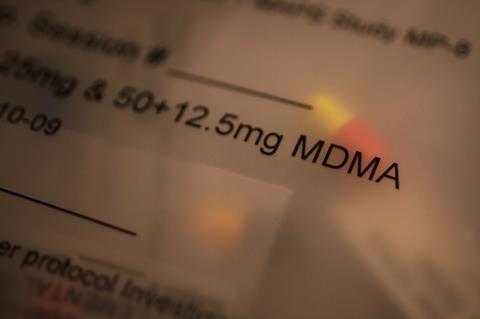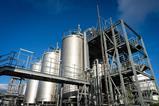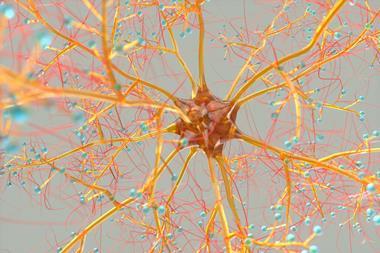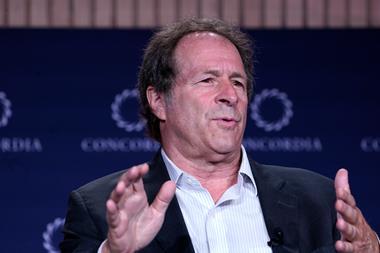Hallucinogen-assisted psychiatric treatment heads to regulators, amid cost and other concerns
Much-anticipated positive clinical results for psychotherapy assisted by MDMA, otherwise known as ecstasy, in people with Post Traumatic Stress Disorder (PTSD) could prompt a major shift in the mental health drug sector. Findings from a US phase 3 trial open the way to the US Food and Drug Administration (FDA) potentially approving MDMA-Assisted Therapy (MDMA-AT) for PTSD as early as 2024.1 While some welcome the results, others are voicing concerns, including that the treatment doesn’t offer value for money.
‘If FDA approved, MDMA-assisted therapy would be the first novel treatment for PTSD in decades,’ says Amy Emerson, chief executive of trial sponsor MAPS Public Benefit Corporation (MAPS-PBC), based in San Jose, US. She explains that MAPS-PBC now intends to file for regulatory approval from the FDA by the end of 2023.

MDMA would then be the first previously illicit hallucinogen to gain legal approval for use in psychiatric therapy. In 2019, the FDA approved Johnson & Johnson’s esketamine, which also causes hallucinations, for treatment-resistant depression. However, esketamine is the S-enantiomer of ketamine, an approved anaesthetic that can legally be used off-label in psychiatry. MDMA could also be followed by similar therapies involving other drugs like psilocybin, the hallucinogen in magic mushrooms. Australia has allowed clinical psychiatric use of MDMA and psilocybin since June 2023, but the drugs themselves do not have formal regulatory approval.
‘This is really positive for the psychedelic space,’ says Bill Ciprick, chief executive of Optimi Health from Vancouver, Canada, which produces therapeutic MDMA and psilocybin. ‘From a credibility standpoint, that data speaks wonders.’
Cautious verdict
The 104-person trial was the standard second, confirmatory, phase 3 trial, replicating findings from a previous one that MAPS-PBC published in 2021.2 In that first trial, two therapists abused a patient during an MDMA session. In response, MAPS-PBC has since ‘carefully developed and implemented policies and practices aimed to prevent, reasonably detect, and thoroughly respond to allegations of misconduct’, Emerson says.
The new trial also extended participation to a more racially and ethnically diverse group, and to moderate as well as severe PTSD sufferers. Scores for PTSD symptoms for participants in the MDMA-AT groups significantly reduced compared to participants receiving placebo with therapy.
It’s very much about psychotherapy being aided by a drug
Bita Moghaddam, from Oregon Health and Science University in Portland, US, is concerned that ‘hype and misrepresentation’ about the treatment could make people think taking illicit MDMA will cure them. However, the treatment ‘is very much about psychotherapy being aided by a drug’, she says. The latest trial was needed ‘to convince the FDA to approve this mode of treatment and for insurance companies to pay for the expensive psychotherapy aided by MDMA’, Moghaddam explains.
Joar Øveraas Halvorsen, from Norwegian University of Technology and Science in Trondheim, also highlights the therapy’s high costs. At around $11,000 (£8900) per patient, MDMA-AT costs three to four times as much as existing PTSD therapies, Halvorsen tells Chemistry World. That’s in part because in MDMA-AT patients spend more than twice as long in psychotherapy, he notes. He also highlights that nearly two-thirds of potential patients considered for participation in the trial were excluded. Together, the high costs and exclusion rates indicate that ‘MDMA-assisted psychotherapy is for the few and not for the many of patients with PTSD’, Halvorsen says.
Floodgates open
The treatment costs result from how MAPS-PBS is funding MDMA-AT’s commercialisation. So far, it has mostly paid for its research with philanthropic grants, Emerson says. It is now ‘focused on generating revenue from the sale of our MDMA drug product, if approved’, which will bring the therapy ‘to patients in need’, she adds. ‘Our team has been working hard to ensure there is a path forward for insurers to cover both the drug and the therapy sessions,’ Emerson adds. For the current clinical trial, it used a contract manufacturing company to source the MDMA, she says.
A good supply chain for such a therapy needs at least two suppliers, says Ciprick, and Optimi Health is ‘doing what we can to be considered to be one’ for MDMA-AT. Optimi Health already supplies MDMA and psilocybin to health professionals and researchers through a long-term distribution agreement with Mind Medicine Australia. Ciprick explains that MAPS-PBC published a four-step synthetic process for MDMA that complies with Current Good Manufacturing Practice (cGMP) rules in 2022.3 While that approach is now public knowledge, not everyone can use it.
‘You need the sophistication of a pharmaceutical manufacturer,’ Ciprick says. ‘Then you also on top of that need permits, protocols, security and to know how to handle controlled substances.’ He calls the measures involved ‘very stringent’.
If the FDA approves MDMA-AT, it will open the US market’s floodgates, Ciprick believes. He suggests that initial demand from therapists seeking to learn how to administer MDMA-AT will be significant. ‘You’ve got one of the largest pharmaceutical markets in the world that will have thousands of therapists that need training,’ Ciprick tells Chemistry World.
References
1. J M Mitchell et al, Nat Med, 2023, DOI: 10.1038/s41591-023-02565-4
2. J M Mitchell et al, Nat Med, 2021, 27, 1025 (DOI: 10.1038/s41591-021-01336-3)
3. J B Nair et al, ACS Omega, 2022, 7, 900 (DOI: 10.1021/acsomega.1c05520)

















No comments yet